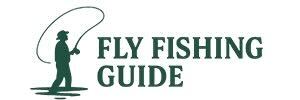Patagonia on the Line: A Half-Day Fly Fishing Escape in Coyhaique
Four hours, two anglers, one river—Coyhaique’s trout classroom in the heart of Patagonia.
Dawn shakes the frost from the lenga trees as the river wakes first—exhaling mist, tightening its muscles, and sliding past boulders with unhurried confidence. In Coyhaique, the heart of Chilean Patagonia, water runs the show. It hurries you along when you hesitate and dares you to place a fly where the current pinches into a seam. With a guide at your shoulder and only one other angler sharing the day, you wade in. The river folds around your legs like a living thing, cool and steady, and a brown trout rises on the far edge of a riffle, tipping the surface with the quiet certainty of a veteran.
Trail Wisdom
Read the Seams
Target the soft edges where fast and slow water meet—fish often hold just inside the cushion to feed with minimal effort.
Polarized Sunglasses Are Non-Negotiable
Glare can hide fish and structure; polarized lenses help you spot cruising trout and avoid ankle-twisting holes.
Mind the Patagonian Wind
When gusts kick up, shorten your cast, tighten your loops, and aim slightly upwind to keep flies away from your ear.
Wade Like a Tripod
Plant each step deliberately and keep two points of contact—one foot and your wading staff—before moving the next.
Local Knowledge
Hidden Gems
- •The quiet side channels of the Río Simpson after a flow drop—perfect for sight-fishing
- •Evening strolls along Coyhaique’s Plaza de Armas for artisan wool goods and local snacks
Wildlife
Andean condor, Green kingfisher
Conservation Note
Clean, drain, and dry gear to prevent invasive didymo; practice barbless, single-hook catch-and-release to safeguard wild trout populations.
Coyhaique grew as a sheep-ranching outpost; the Carretera Austral, built in the late 20th century, connected the region and opened access to its rivers.
Seasonal Guide
spring
Best for: Streamers and nymphs, Active flows and fresh hatches
Challenges: Cold mornings, Higher, sometimes off-color water
September–November brings snowmelt-swollen rivers and hungry trout. Expect dynamic conditions and excellent learning days.
summer
Best for: Dry-fly action, Long daylight and diverse water options
Challenges: Afternoon wind, Stronger sun exposure
December–February is prime time: clear water, terrestrials, and reliable access. Plan for wind and bring sun protection.
fall
Best for: Aggressive browns, Clear water and fewer crowds
Challenges: Cooler temps, Shorter daylight
March–May often features stable flows and browns chasing baitfish. Layers and a warm hat pay off.
winter
Best for: Quiet landscapes, Occasional mild windows
Challenges: Limited season/regulations, Cold water and weather
June–August sees restricted fishing and tough weather; go only under guide advice and check current regulations.
Photographer's Notes
What to Bring
Polarized SunglassesEssential
Crucial for spotting fish, reading structure, and protecting eyes from errant hooks.
Layered Clothing and Waterproof ShellEssential
Patagonia’s weather changes fast—layers and a shell keep you dry and warm through shifting wind and spray.
Wading Boots with Good TractionEssential
Sticky soles or studs help on cobbles and slick bedrock common in Patagonian rivers.
Sun Protection (Hat, Buff, SPF 50+)Essential
High UV and reflective water demand robust sun coverage on clear days.
Common Questions
Do I need prior fly fishing experience?
No. Guides tailor instruction for beginners and experts, covering casting, reading water, and safe wading.
Is all the gear provided?
Yes—rods, reels, flies, and wading gear are available. You’re welcome to bring your own setup if you prefer.
What fish will I target?
Primarily wild brown and rainbow trout in local rivers, creeks, and lagoons.
Is catch-and-release required?
Yes. This experience practices catch-and-release with barbless hooks to protect the fishery.
Do I need a fishing license?
A Chilean sportfishing license is required. Your operator can arrange it or advise on how to secure one in Coyhaique.
What happens in bad weather?
Trips run in most conditions, but guides may adjust locations or techniques for safety and productivity. Severe weather can prompt rescheduling.
What to Pack
Lightweight layers for variable wind and temperature; polarized sunglasses to cut glare and spot fish; quick-dry socks and base layers for comfort under waders; high-SPF sunscreen and lip balm for intense UV at southern latitudes.
Did You Know
The Río Simpson National Reserve, just west of Coyhaique, protects a key watershed and wildlife corridor—its namesake river is one of Chile’s most iconic trout fisheries.
Quick Travel Tips
Fly into Balmaceda Airport (BBA), 50 minutes from Coyhaique; carry cash for small shops and park fees; expect limited cell service once outside town; confirm fishing season dates and license needs before arrival.
Local Flavor
After you hang up the waders, refuel in Coyhaique with Patagonian lamb, local trout, and a pint from one of the town’s craft breweries. Grab a table near the woodstove, order a calafate-infused dessert, and browse the Plaza de Armas for merino wool socks or a hand-carved maté gourd—souvenirs with purpose for tomorrow’s early start.
Logistics Snapshot
Closest airport: Balmaceda (BBA). Meeting points in Coyhaique; typical river access 20–60 minutes by vehicle. Cell service fades quickly outside town. A valid Chilean fishing license is required; guides can assist. Dress for wind and bring a photo ID.
Sustainability Note
Use barbless hooks, keep fish wet, and minimize handling time. Rinse wading gear and boots to prevent didymo spread, and pack out every scrap of tippet or leader material.
Continue Reading

Reeling in the Coast Range: A Half-Day Fishing Escape from Whistler Village
Short drives from Whistler Village put you on fast, productive water: this three-hour guided fishing trip is an accessible, efficient way to learn local techniques and chase rainbow and cutthroat trout in the Sea-to-Sky corridor.
Whistler, British Columbia

Streamside Lessons: A Half-Day Walk & Wade Trout Trip in Cherokee
Learn to read pocket water, cast with purpose, and feel the pull of wild trout on a private, four-hour guided outing in western North Carolina. This half-day walk-and-wade trip is ideal for beginners and seasoned anglers who want concentrated time on some of the region’s best small rivers.
Cherokee, North Carolina

